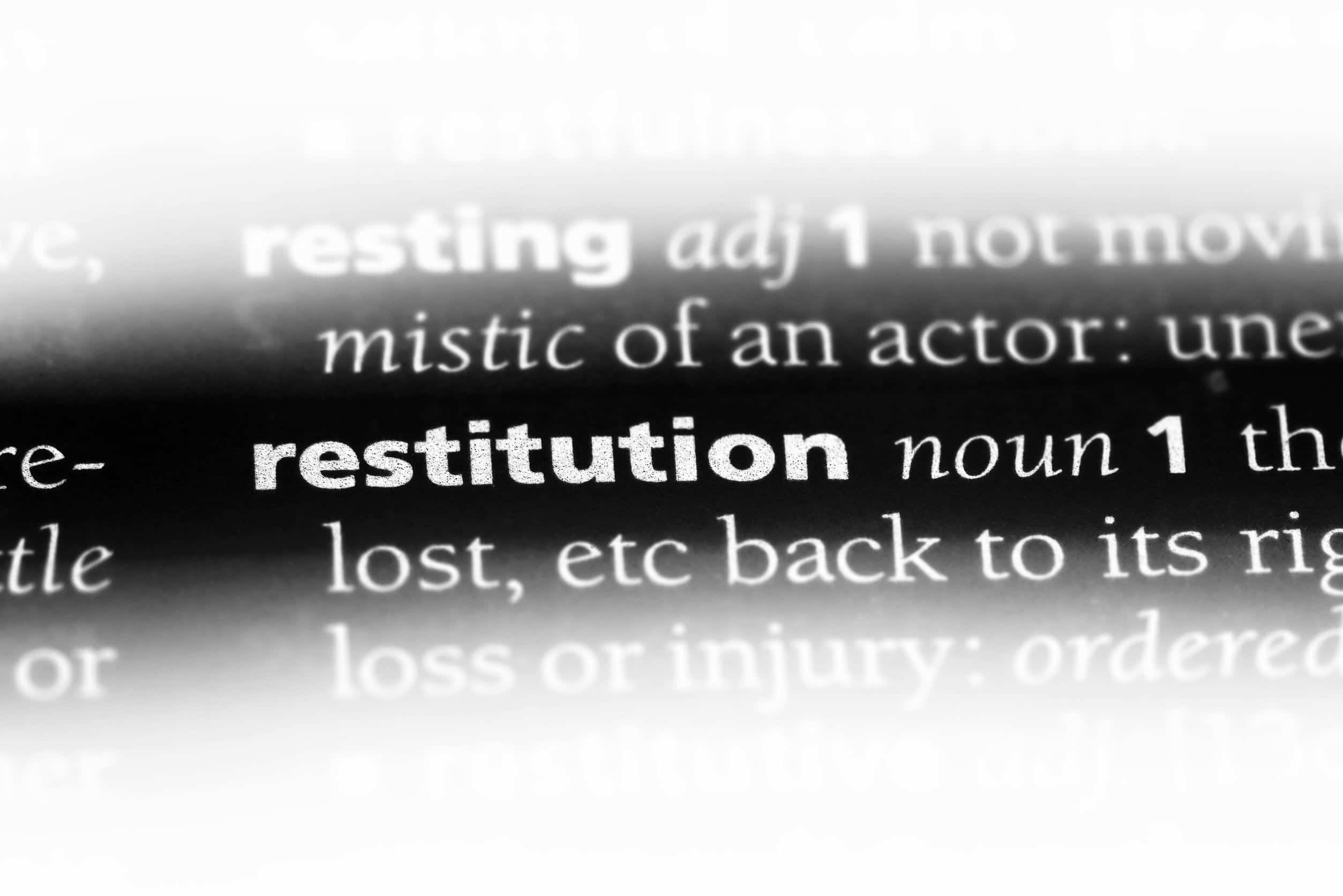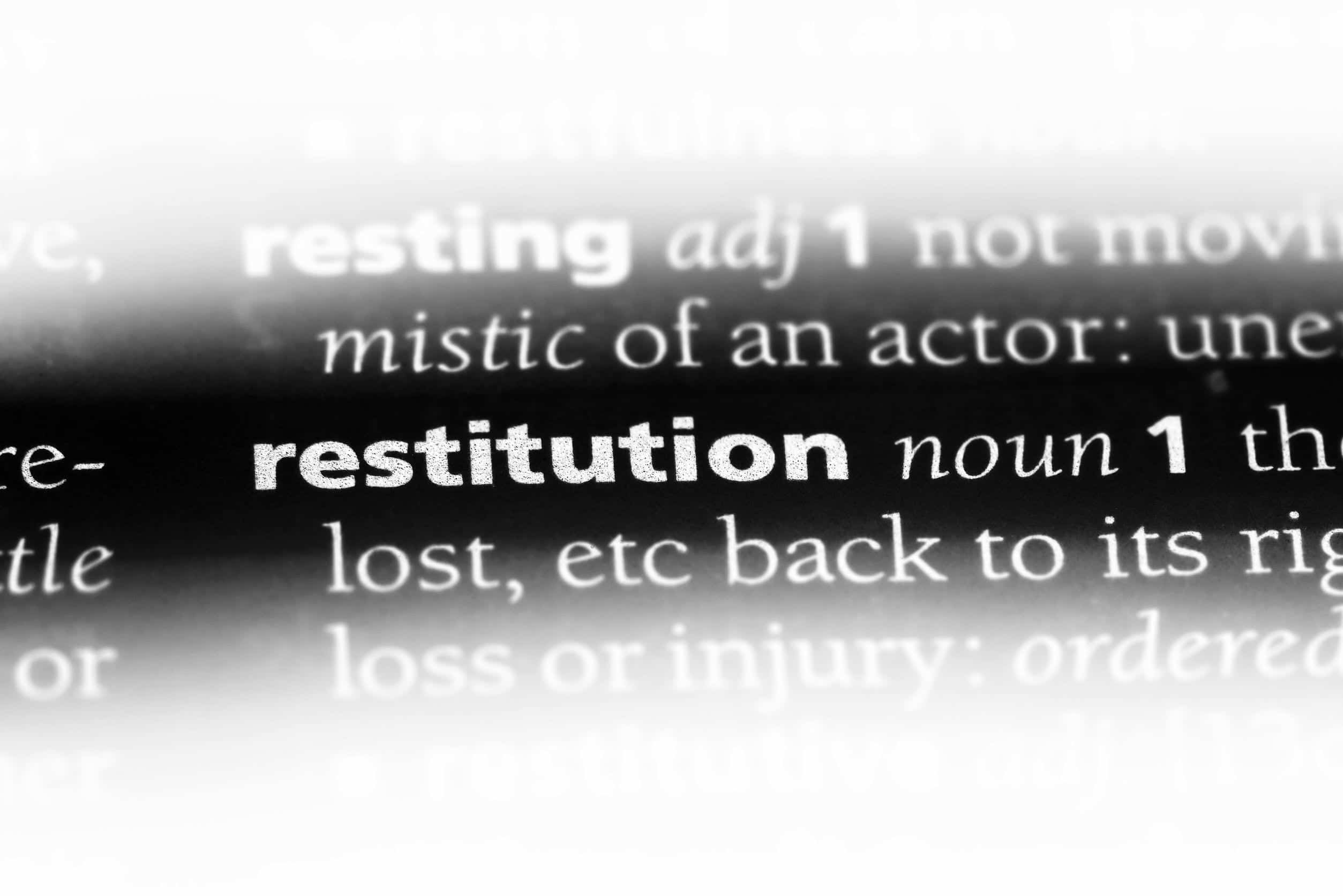I’m Being Ordered to Pay Restitution in MN — What Does That Mean?

Andrew & Poole, P.A.

When people say that “crime doesn’t pay,” they’re not exactly being truthful. While it is true that crime won’t end well for anyone involved, it can end in expenses for both the perpetrator and the victim.
Courts in Minnesota often side with the victim when it comes to who is responsible for paying up. Minnesota judges have the authority to order an offender to pay something called restitution to the victims of their crimes.
If you’re not familiar with restitution, then you’re not alone. Here’s what everyone needs to know about restitution, how it’s ordered, how it’s paid, and who is eligible to receive it.
Restitution: An Overview
As part of a criminal case, restitution is ordered to be paid by the court to compensate the victim of a crime for losses they suffered as a result of it. Each state, including Minnesota, has laws that require certain convicted criminals to pay restitution to the victims of their crimes.
Restitution is a tool used quite often in criminal cases because it is seen as a way for perpetrators of crimes to have direct consequences for actions taken against victims.
Restitution must be considered by the courts as a part of a sentence, plea bargains included, even if it’s not requested by the victims. If restitution is not ordered by the judge or it’s only ordered partially, it must be justified in the court records by the judge.
Is Restitution a Fine?
Fines, as well as restitution, are financial costs to a defendant that are part of a criminal sentence, but they are not the same thing. Fines are predetermined and specific penalties for crimes that are paid to the court. The purpose of a fine is to punish. Conversely, restitution is meant to repay victims for the losses they suffer due to the crime.
When Does a Judge Order Restitution?
A judge usually orders restitution as a part of a criminal sentence when:
- The victim needs it in order to feel whole
- The court deems it necessary for the defendant’s rehabilitation
- The financial losses of the victim are related directly to the crime
Most of the time in cases of fraud and theft, restitution is ordered. The defendant may be ordered to pay back the amount of money stolen.
Mandatory restitution may be required in certain cases, too, such as sexual assault, drunk driving, identity fraud, crimes against the elderly, hate crimes, child abuse, and domestic violence.
Who Can Receive Restitution

Who is eligible to receive restitution? Generally, there are four parties that may be entitled to restitution at the conclusion of a criminal case. They are direct victims, third parties, indirect victims, and the government. Learn more about each below.
Direct Victims
These are people who are directly injured or who have suffered a loss directly due to the crime. In some cases like financial crimes, however, the victim can be a person, corporation, partnership, or any other entity or association.
Third Parties
Restitution can be ordered for an entity that paid recovery to a victim, such as government entities or victim compensation programs. Sometimes even insurance companies can be paid restitution if they reimbursed the victim for losses they suffered.
Indirect Victims
An indirect victim is someone who was not necesarrily the target of a crime, but in fact, was directly affected by the commission of it. An example of indirect victims include surviving family members of a murder victim.
The Government
In some cases, there is no identifiable victim to the crime and in those cases, restitution cannot be paid. However, in some places, society at large and the government may be considered victims that restitution must be paid to.
How Restitution is Paid
If you are ordered by the court to pay restitution, then a payment schedule will be set up by the defendant’s probation officer and they will continue to monitor it until it is paid in full. If the defendant is not on probation, then a court administrator will set the schedule.
In some instances, restitution may be ordered to be paid out all at once. If this is the case, then it must be done on the day of sentencing.
Restitution payments are not made directly to the victim but to the court administrator, who then issue a check to the victim.
When Restitution is Due But Not Paid

What happens if restitution is not paid by the offender? In the case where the offender is on probation, then the victim can request a review hearing through the probation officer. At the hearing, the judge may extend probation until all restitution has been paid by the defendant.
If you are ordered to pay restitution and cannot pay it, then you can ask the court to change the order where the victim may be asked to provide additional documentation to justify the restitution order.
About the Author:
Andrew T. Poole is a Minnesota native who has served in the Army for more than 18 years and is currently a JAG lawyer in the Army Reserves in addition to serving as a partner at LaCourse, Poole & Envall. He has handled thousands of criminal and family law cases over the course of his career and has a firm belief that all hardworking Minnesotans should be entitled to the best possible legal counsel. Mr. Poole boasts a 10/10 Superb rating on Avvo, is Lead Counsel rated, and has been recognized multiple times by SuperLawyers, National Trial Lawyers, and others for his work.
















